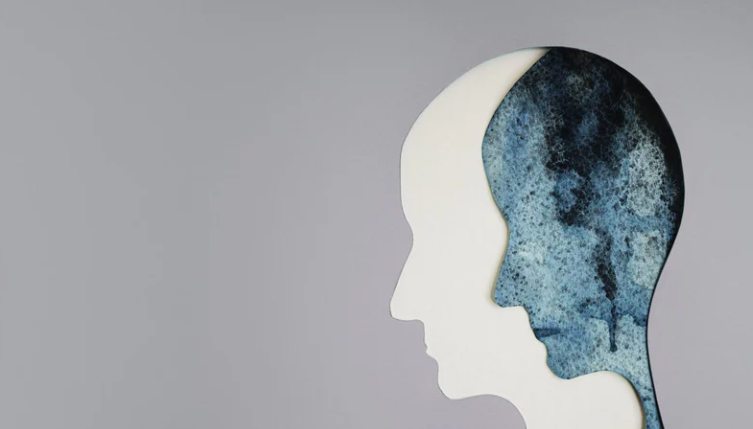Eating Disorders

Take a moment and consider:
Is there a family member whose eating habits have changed and have you worried?
Do you find yourself hiding food and eating it when no one else is around?
Does it feel like friends and family are badgering you about your weight or eating habits?
Are you weighing yourself, if so, more often than usual?
Has exercising increased?
Do you wonder if you are sick enough for treatment?

These are just a few of the questions individuals ask when either themselves or a loved one may be struggling with an eating disorder. Eating disorders are more common than many realize and are both a mental health and medical condition.
Whether you’re seeking to better understand these conditions or seeking help for yourself or a loved one, this page provides the knowledge and support you need to navigate the path towards recovery and a healthier relationship with food.
We invite you to join CFCE in promoting awareness, understanding, and hope in the face of eating disorders.

Eating disorders are mental health conditions that often involve unhelpful eating behaviors and distorted body image. They can include:
- Anorexia nervosa
- Exercise-Induced anorexia
- Bulimia nervosa
- Binge-eating disorder
- Other specified feeding or eating disorders (OSFED)
- Avoidant/restrictive food intake disorder (ARFID)
Individuals with eating disorders often experience a wide range of symptoms like these:
- Obsession with Food and Weight: thoughts about food, calories, and weight can dominate the mind, leading to preoccupation and anxiety around eating.
- Fear of Weight Gain: an intense fear of gaining weight, even if you are underweight or have a distorted body image.
- Guilt and Shame: behaviors such as binge eating or purging can lead to intense guilt and shame. You may feel guilty after eating or ashamed of your inability to control your eating.
- Isolation: withdrawal from social activities or feeling embarrassed or anxious about eating in front of others.
- Perfectionism: the need for perfection and control may drive some disordered eating behaviors. You may feel that you must achieve unrealistic standards.
- Depression and Anxiety: eating disorders often co-occur with mood disorders like depression and anxiety. Feelings of hopelessness, sadness, or anxiety are common.
- Body Dissatisfaction: strong feelings of dissatisfaction with one’s appearance, even if others perceive them differently.
- Compulsive Exercise: excessive exercise as a way to control weight, leading to feelings of compulsion and anxiety if you can’t exercise.
- Denial: this is very common and many individuals may not recognize the seriousness of their condition or the impact it has on their health.
The Sooner the Better
CFCE has therapists that understand the complexity of eating disorders and acknowledge that treatment requires a combination of therapeutic modalities, such as Cognitive Behavioral Therapy, Dialectical Behavioral Therapy, Internal Family Systems, Mindfulness, Family Therapy, Group Therapy, Nutrition Therapy, and at times Medication to address the physical and psychological aspects of eating disorders. Early intervention is crucial, so please reach out to learn how we can support you and your loved ones.

Common Q&A about Eating Disorders:
How can I tell if someone I love or I have an Eating Disorder (ED)?
-
- Dramatic weight changes — rapid weight loss or gain
- Frequent avoidance of meals or eating in isolation
- Preoccupation with body image, constant negative self talk about physical appearance
- Excessive exercise, even when unwell or injured and experiences feelings of guilt if unable to exercise
- Social withdrawal or changes in mood
- Wearing loose clothing to hide body shape
- Hoarding or hiding food
How should I talk to someone who I think has an ED?
-
- Choose the right time and place: find a quiet, private setting where you can talk without distractions.
- Express concern, not judgment: start the conversation with empathy. Use “I” statements to convey your worry, e.g “I’ve noticed you seem to be struggling around meal times”.
- Be non-confrontational: avoid accusations or criticism. Instead, offer support and understanding. Tell your loved one that you’re there to listen and help.
- Use open-ended questions: encourage your loved one to share their feelings and experiences. Ask questions like “How are you feeling?” or “Can you tell me what’s been going on?”, instead of questions that only require one-word answers.
- Keep the conversation related to emotions, their overall well-being, and seeking professional help because with most EDs it’s not actually about the food.
- Understand that they might not be ready to accept help immediately and that it may feel too uncomfortable to open up about their symptom use.
What are the different levels of treatment for an Eating Disorder?
-
- Outpatient treatment: Is the least intensive form of treatment and can be weekly or more frequent therapy. It is suitable for individuals who stepped down from more intensive treatment or are in a place where weekly or biweekly support is sufficient.
- Intensive Outpatient Program (IOP): Provides more structure and frequent hours of individualized and group therapy and meal support.
- Partial Hospitalization Program (PHP): Is a step up from IOP and involves full day treatment with individualized and group therapy, medical monitoring/medication management, and meal support.
- Residential Treatment: Individuals live in a specialized facility and receive 24 hour care including psychiatric and nutrition therapy, medical supervision/medication management, and structured meals.
- Inpatient hospitalization: Provides 24/7 medical and psychiatric care in a hospital setting that allows for any kind of medical exam/lab work to be done on site.
- Figuring out what your loved one needs can be done through an assessment with a healthcare professional such as a therapist, primary care physician, or nutritionist who specializes in eating disorders.
What causes Eating Disorders?
-
- EDs can develop from a combination of environmental, genetic, and psychological factors. There is rarely “one thing” that causes an eating disorder.
Can Men have Eating Disorders too?
-
- Yes, eating disorders can affect people of any gender. Regardless of gender and race, everyone is faced with their own set of expectations and pressures from their community.
What are the Health Consequences of Eating Disorders?
-
- Eating disorders can lead to a range of physical and mental health problems including malnutrition, electrolyte imbalances, heart issues, GI issues, depression, and more.
Is recovery from an Eating Disorder possible?
-
- Yes! Recovery from an eating disorder is possible with time, receiving individualized treatment at the appropriate level of care, and allowing oneself to be and feel supported. Recovery is not linear and opening up oneself to any kind of help is the first step!


